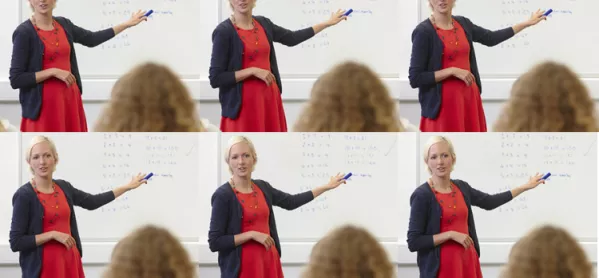- Home
- GCSE results: Why students shouldn’t be forced to resit
GCSE results: Why students shouldn’t be forced to resit

Tomorrow, thousands of individuals across the country will receive their GCSE results. It’s a good time to reflect on the policies that are limiting learners, increasing negative effects on their mental health and placing greater strain on the further education system.
GSCEs are fantastic qualifications for many young people and signify a time in their lives when the hard work and determination has really paid off and they see their hard work come to fruition.
However, this isn’t the case for all learners. It’s well known that people learn in different ways, yet the way we test our learners still very much remains a one-size-fits-all approach. For some, the application of knowledge in a time-pressured environment just doesn’t work; for others, the theoretical application of maths and English in a written style isn’t for them. So why do we persist in making learners resit exams when it doesn’t suit them as individuals?
Background: GCSE English and maths: do I need to resit them?
Opinion: ‘Soul-destroying GCSE resits are a national scandal’
More news: ‘I emerged from maths GCSE as if I’d run a marathon’
The impact of GCSEs on mental health
Building on this, at NCFE we released polling in March that highlighted the damaging impact exam stress can have on learners’ mental health, with 70 per cent of respondents at school feeling the pressure to resit their core GCSES (science, English or maths) if they failed. Additionally, over half of respondents said that studying for their GCSEs was the most stressful time of their teenage years.
Unfortunately, this isn’t a one-year trend. Negative mental health effects from the pressure of sitting examinations during school years have been reported every year. Only last year, a Tes article reported that the newer “tougher and more rigorous” exams and the “swapped letters for numbers” grading system were taking a serious toll on learners’ mental health.
The question we have to ask, and particularly one that the government should review, is whether we are placing unnecessary stress and pressure on a large group of young people when viable alternatives can be funded if they fail their GCSEs first time, only achieving a grade 3. At present those who achieve a grade 3 are required to retake the GCSE.
If we have a solution that can ease this pressure, should we not be implementing it?
That’s why at NCFE, we launched our #FullyFunctional campaign, calling on the government to provide funding for learners who failed to achieve higher than a grade 3 in their maths and English GCSEs.
This isn’t a brand new idea. The funding is already in place for learners who achieve a grade 2, so the ask of #FullyFunctional is simply calling for an extension on this funding policy.
In support of #FullyFunctional, Dexter Hutchings, co-founder of The Apprentice Voice organisation for apprentices, said: “Our education system does not provide young people with the skills they require for the 21st century. Employers have made it clear that the biggest drivers of success for young people are attitudes and attributes such as resilience, enthusiasm and creativity.
“However, the government remains persistent that they will continue to leave pupils stuck in a cycle of maths and English resits. In a drive to ‘raise standards’ we are, in fact, letting down thousands of young people. Last year fewer than 25 per cent of students resitting maths passed, whilst only a third passed English. Instead, we should give our young people the skills and knowledge that employers require.”
The skills that employers want
Extending the funding for learners who aren’t able to reach the grade 4 should be a priority for the government. Our survey also questioned the public’s views on functional skills qualifications and GCSE resits, finding that 83 per cent of business directors said English and maths qualifications should be easily applied to everyday life and almost three-quarters of employers surveyed (directors and business owners) believe it is important for students to learn in a style that suits them.
Functional skills qualifications offer a strong alternative for students who learn in a different style, which equips them for the workplace and teaches them the skills and attitudes they need for real life to ensure every young person has the ability to reach their goals and aspirations.
It’s time to address the fact that learning isn’t a one-size-fits-all policy, and we need to break the negative cycle of GCSE resits by providing the right funding for learners who achieve grade 3 so there is the opportunity to sit functional skills as a viable alternative.
Sian Wilson is director of growth at NCFE
Keep reading for just £1 per month
You've reached your limit of free articles this month. Subscribe for £1 per month for three months and get:
- Unlimited access to all Tes magazine content
- Exclusive subscriber-only stories
- Award-winning email newsletters